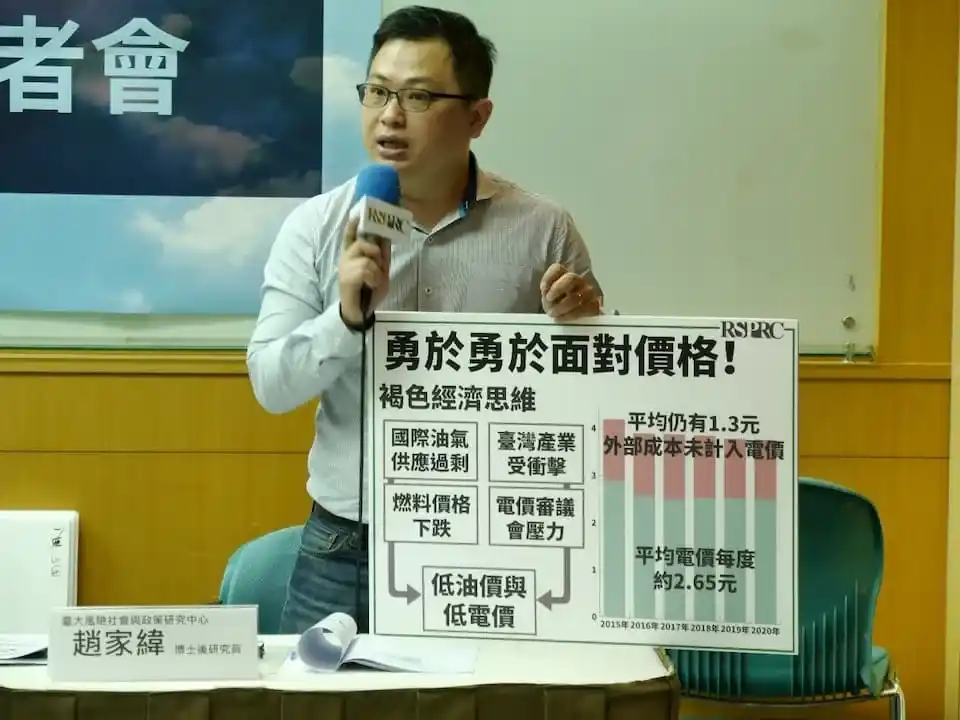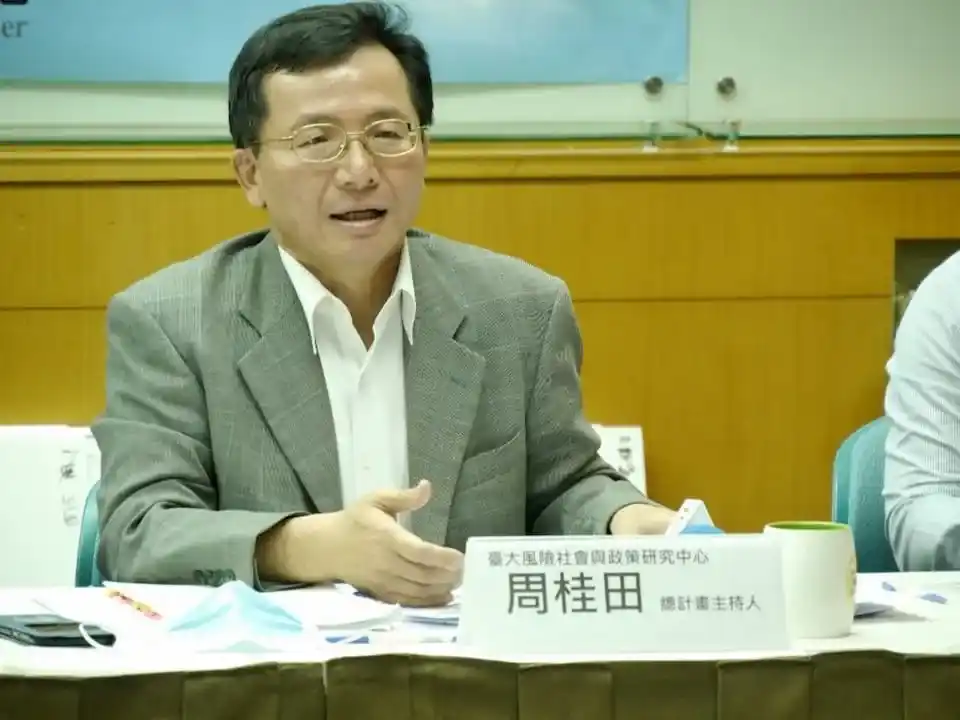President Tsai Ing-wen's Energy Transition Promises: What Taiwanese Hope to See in the Next Four Years
Author/Yi Ling Roy Ngerng, Assistant Researcher, RSPRC
Taiwan's President, Dr. Tsai Ing-wen, was inaugurated last month for her second term, after overseeing an effective COVID-19 response. She took her second term in office on her highest approval rating ever – of 74.5%, in a survey conducted by the Taiwan Brain Trust. Another survey by the Taiwan New Constitution Association also saw her approval reach "an all-time high of 73%". But has she set out to achieve what she promised to do, and do Taiwanese agree with her energy transition policies? Also, what are local environmental groups and experts are saying?
President Tsai Ing-wen's Renewable Energy Promises for the Next Four Years
Given such high confidence among Taiwanese, President Tsai said in her inauguration speech that, she would "reinvent Taiwan and lead our country into the future", and "make Taiwan a center for green energy in Asia". The newly-appointed ministers in her new term of government are also putting renewable energy on the agenda.
-
New Minister of Science and Technology Wu Tsung-tsong highlighted his goal of tackling challenges faced in the energy supply and environment, in order to achieve "an innovative, inclusive and sustainable society by 2030".
-
New National Development Council Minister Kung Ming-hsin also said the government would "deepen the development of renewable energy sources", particularly that of offshore wind farms, so as to turn it into "another trillion-dollar business and create well-paid jobs for young people".
-
New Financial Supervisory Commission Chairman Huang Tien-mu also pointed out that green finance would be promoted, by "providing funds or financial tools such as bonds to borrowers for sustainable or green investments".
Taiwanese Agree with President Tsai Ing-wen's Energy Transition Policy But Want Her Government to Do More
President Tsai's energy transition policy has clearly resonated with Taiwanese – in survey results RSPRC released two weeks ago, 82.4% of respondents agreed that, "the promotion of energy transition should be accelerated in order to prevent future generations from falling victim to climate change". This support is in fact consistent across the political spectrum in Taiwan.
But it is not all a bed of roses for the government. RSPRC Postdoctoral Research Fellow Dr. Chao Chia-wei pointed out that compared to her first inauguration speech four years ago, President Tsai spent much less focus on energy transition.
In 2016, President Tsai talked about pursing a "new economic model for sustainable development based on the core values of innovation, employment and equitable distribution," and that, this "New Model for Economic Development will be fully integrated with national land-use planning, regional development and environmental sustainability". President Tsai also talked about the need to "monitor and control all sources of pollution", "turn waste into renewable resources" to "bring Taiwan into an age of circular economy", and to "adjust our energy options based on the concepts of sustainability". Her 2020 inauguration speech therefore looked like a step backwards, Dr. Chao said.
 Figure 1: RSPRC Postdoctoral Research Fellow Dr. Chao Chia-wei
Figure 1: RSPRC Postdoctoral Research Fellow Dr. Chao Chia-wei
Indeed, in RSPRC's survey, Taiwanese rated the fairness of the implementation of Taiwan's energy transition at only an average score of 3.83 out of 7 points. In terms of how well-planned it was, Taiwanese only rated it a score of 3.74.
Local Groups Are Asking the Government to Implement a Clearer Roadmap for Energy Transition and Carbon Reduction
Stronger policy tools are therefore needed for Taiwan's energy transition. A day before President Tsai's inauguration, Greenpeace Taiwan pointed out that under Taiwan's Renewable Energy Development Act that was "overhauled" last year, the Ministry of Economic Affairs announced draft regulations to require large electricity businesses (with "a contract capacity of more than 5,000 megawatts") to "use at least 10% of renewable power in five years". However, by April 1, the ministry has not yet provided any timeline for its implementation, Greenpeace Taiwan's campaign specialist Alynne Tsai said. Even so, even if the 300 large electricity businesses in Taiwan abided by the requirements, it would still only result in a 1% growth of renewable power capacity by 2025.
A petition signed by more than 143 scientists from 82 academic and research centers released in April also pointed to the need for the government to address climate emergency. RSPRC's Lead Principal Investigator Prof. Chou Kuei-tien, who is among the signatories, also called out the "lackluster climate action response" and called on the government to implement a clear decarbonization roadmap. The scientists therefore called on the government to dedicate the same amount of resources to combat climate change as it has to fight the COVID-19 pandemic.
 Figure 2: RSPRC Lead Principal Investigator Prof. Chou Kuei-tien
Figure 2: RSPRC Lead Principal Investigator Prof. Chou Kuei-tien
Green Transition Should Be Integral to Taiwan's Stimulus Plan
In RSPRC's survey, respondents rank accelerating energy transition and reducing carbon emissions as one of the top priorities the government should focus on, alongside fighting COVID-19. Taiwanese consider accelerating energy transition and carbon reduction to be one of the key long-term priorities for Taiwan, alongside managing the COVID-19 pandemic
These are strategies the more than 20 environmental groups in Taiwan are also calling on the government to implement. In a statement they released in April, they pointed out how the estimated decline of carbon emissions by 5% has exposed how the current global economic model is over-reliant on high-carbon growth.
In fact, a latest study estimates that carbon emissions could decline by as much as 7% globally this year, as compared to 2019. As part of the stimulus provided by the government to businesses, the environmental groups are calling on the government to require these businesses to also fulfil green obligations, and that the fall in oil prices worldwide should be an opportunity not for the government to reduce fuel prices, but to use the cost savings to invest in a low-carbon transition.
Dr. Chao who helped draft the statement, added that airlines and shipping companies applying for bailout from the government should also be required to abide by specific Greenhouse Gas Emissions Reduction Targets, and that the new budget this year for Taiwan's forward-looking infrastructure development program should also be "designed as part of [a] green stimulus package".
Taiwanese Support More Green Obligations on Returning Taiwanese Businesses
But such green obligations should not only be required of local industries, but also for Taiwanese companies returning to invest in Taiwan due to the US-China trade war and COVID-19.
Just last month, the Ministry of Economic Affairs announced that 480 Taiwanese companies have pledged to invest more than NT$1 trillion in Taiwan, under government incentive programs which would allow them access to "lower interest rates, lengthened loan terms, relaxed labor restrictions, and easy access to land and utilities".
However, RSPRC's survey also found high support (82.1%) for these companies receiving government subsidies to oblige energy efficiency reviews – Dr. Chao pointed out that the government should require them to undergo energy assessments and to adhere to energy standards – a point he also made at RSPRC's report launch last year on Taiwan's long-term energy transition proposal.
Taiwan's Low Carbon Transition Pathway Should Include Carbon Tax
RSPRC's survey also supports the statement by the 20 Taiwan's environmental groups, that fuel prices should not be reduced. In fact, 56.7% of Taiwanese to RSPRC's survey said that they were willing for fuel prices to be increased upwards as a form of carbon tax, and 34.3% were even willing to accept increases of more than NT$3 per kilowatt-hour (kWh) from the current NT$2.6 kWh – if it could lead to lower carbon emissions.
The challenges of carbon pricing can also be tackled by channeling the revenue earned from carbon taxes to compensate and protect lower-income households – if done well and progressively. Dr. Chao also suggested implementing complementary measures such as subsidies for low-income households to purchase high efficiency appliances. The more than 20 environmental groups are also calling for the government to consider basic income as well as to protect the low-income as well – it is therefore a priority that the Minimum Wage Act announced more than a year ago which would peg wages to the cost of living should be urgently passed.
Tsai Should Make Use of the Window of Opportunity to Transform
It is thus exciting times for Taiwan to be in. While President Tsai has won a second term and garnered her highest approval rating ever, this should provide the impetus for her to pursue bolder energy transition and social transformation initiatives in order to bring Taiwan into the next era.
As Dr. Chao said, the bipartisan support for President Tsai's energy transition policy provides a "window of opportunity" with which she can push for bolder reforms toward a national-level strategy to combat climate change. To successfully do so would require transformations at all levels, including within society and governance. Moving on from the success of Taiwan's COVID-19 response, the next four years present much opportunity and potential for Taiwan to transform, if done well.
This article is based on RSPRC's latest 'Let's Transform Taiwan' podcast. You can listen to it here.

This work is licensed under a Creative Commons Attribution-NonCommercial-NoDerivatives 4.0 International License.
※The aforementioned may not be copied for commercial use without the center's consent, thank you.※
